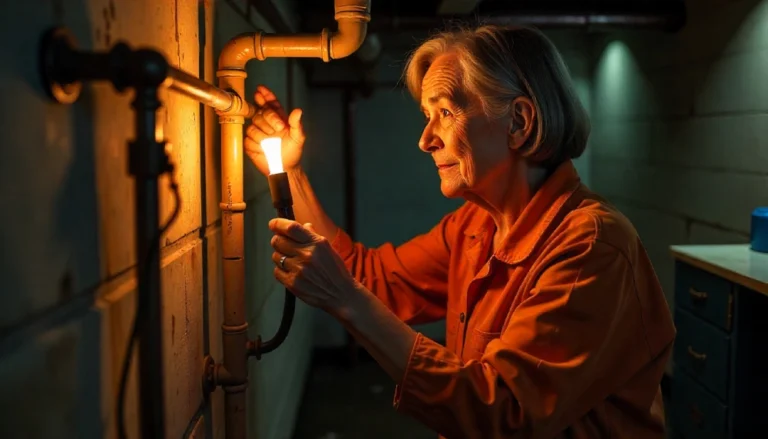In today’s world, plumbing problems can strike without warning. A reliable plumber prevents small issues from becoming costly disasters, handling everything from leaky faucets to complex pipe systems while ensuring homes and businesses remain functional and safe. The plumbing profession offers exceptional job security, competitive pay, and the opportunity to provide essential community services. However, obtaining a license requires dedication and following specific steps.
Plumbing maintains the critical infrastructure of clean water flow and waste removal in our buildings. Licensed plumbers not only protect public health but also maintain property values through proper installation and maintenance of these vital systems.
Why Plumbing Licenses Matter
In California, the Contractors State License Board (CSLB) oversees plumber licensing. Unlike other states, California doesn’t require separate journeyman or master plumber licenses. Instead, plumbers need a C-36 Plumbing Contractor License for projects exceeding $500. This license ensures that all plumbing work meets strict safety and quality standards, protecting both consumers and the integrity of buildings’ essential systems.
Requirements for Plumbing Licenses in 2025
To become a licensed plumber in California, you must meet several requirements. First, you must be at least 18 years old and have a valid Social Security Number or Individual Taxpayer Identification Number. The most substantial requirement involves completing four years of journeyman-level experience. Additionally, you’ll need to pass both the trade-specific exam and the business/law exam, submit fingerprints for a criminal background check, and pay all required fees (approximately $450 for application, plus $200 after passing the exam). Financial responsibility is also important – you’ll need working capital of $2,500 and must file a $10,000 bond to demonstrate your business viability.
Apprenticeship Programs
Most aspiring plumbers begin their journey with an apprenticeship program. These programs typically last 4-5 years, combining classroom instruction with paid on-the-job training. Throughout the apprenticeship, you’ll need to complete approximately 800 hours of classroom instruction and 7,200 hours of field experience. This often involves attending classes 1-2 nights per week, plus occasional Saturdays. During your apprenticeship, you’ll earn while you learn, with wages increasing as you gain skills and experience.
Apprenticeship programs in California are offered through several organizations. The Plumbing-Heating-Cooling Contractors Association (PHCC) provides comprehensive training programs that prepare students for all aspects of the trade. Union apprenticeship programs, such as those offered by UA Local 38, combine classroom education with extensive hands-on experience. The Associated Builders and Contractors (ABC) also offers apprenticeship opportunities, as do community colleges like Foothill College and San Diego College of Continuing Education. These programs provide structured learning environments that ensure apprentices develop all the necessary skills.
During your apprenticeship, you’ll learn about plumbing codes, safety protocols, blueprint reading, and various installation and repair techniques. The coursework typically covers pipe system design, fixture installation, water heater servicing, and troubleshooting common plumbing problems. You’ll also gain practical experience working alongside experienced plumbers, allowing you to apply your classroom knowledge in real-world situations. This combination of theoretical knowledge and practical skills forms the foundation of a successful plumbing career.
Plumbing Exams
After completing your apprenticeship and gaining the required experience, you’ll need to pass two exams to obtain your C-36 license. The Law and Business Exam covers various aspects of running a plumbing business, including business organization, financial management, employment laws, contracts and liens, licensing requirements, and safety regulations. This exam ensures that licensed plumbers understand their legal obligations and can operate a business ethically and lawfully.
The Trade-Specific Exam focuses on technical plumbing knowledge, covering planning and estimating, plumbing system installation, repairs and service, code compliance, and safety protocols. Both exams use a multiple-choice format and last 3.5 hours. You’ll need to score at least 73% on both exams to pass. Proper preparation is essential, and many candidates take exam prep courses to increase their chances of success on the first attempt.
Business Licenses and Insurance
Once you’ve passed your exams, you’ll need to address several business requirements before you can begin working as a licensed plumber. These include obtaining a surety bond (currently $15,000), securing workers’ compensation insurance if you plan to have employees, and carrying liability insurance (at least $1,000,000 for LLCs). You’ll also need to obtain any local business licenses and permits required in your area of operation.
The total fees for licensing include the initial application fee of $450, the license fee of $200 after passing the exams, and renewal fees every two years. While these costs may seem substantial, they’re an investment in your career that will pay dividends through increased earning potential and job opportunities.
Plumbing Permits
Most plumbing work in California requires permits, which are issued by local building departments to ensure code compliance. Projects typically requiring permits include water heater installation or replacement, fixture replacements, drainage system modifications, and new plumbing installations. The permit process involves submitting plans for review, paying fees, and undergoing inspections to verify that the work meets all applicable codes and standards.
Obtaining permits is not just a legal requirement but also provides protection for both you and your clients. Permitted work is inspected to ensure safety and quality, reducing liability and providing assurance that the work has been properly completed. Understanding the permit process is an essential part of professional plumbing work.
Plumbing Industry Statistics
The plumbing industry in California continues to thrive. According to the Bureau of Labor Statistics, California employs over 42,000 plumbers, more than any other state. The profession is projected to grow 6% from 2023 to 2033, creating thousands of new job opportunities. The average annual salary for plumbers in California ranges from $64,000 to $75,000, with experienced contractors often earning over $100,000.
These strong economic indicators make plumbing an attractive career option with excellent long-term prospects. The essential nature of plumbing services ensures consistent demand regardless of economic conditions, providing job security that many other professions lack.
Tips for Success
Successful plumbers develop strong communication skills, as clear explanations and active listening are essential when working with clients. They also stay current with technology, as modern plumbing incorporates increasingly advanced systems and materials. Networking is another key to success – joining professional organizations like PHCC helps build connections that can lead to new business opportunities and professional growth.
Safety knowledge is crucial in plumbing work, which involves various hazards including working with tools, exposure to chemicals, and navigating confined spaces. Professional plumbers also often consider specialization, focusing on residential, commercial, or specific systems to increase their marketability and command higher rates for specialized expertise.
Conclusion
Becoming a licensed plumber in California offers excellent career prospects. While the process requires significant time and effort—typically 4-5 years—the rewards include job security, competitive pay, and the satisfaction of providing essential services.
By following the steps outlined in this guide and staying committed to excellence, you can build a successful plumbing career. The profession’s strong growth outlook and California’s ongoing construction boom ensure that skilled plumbers will remain in high demand throughout 2025 and beyond. With dedication to your craft and a commitment to professional development, a career in plumbing can provide both financial stability and personal fulfillment.




